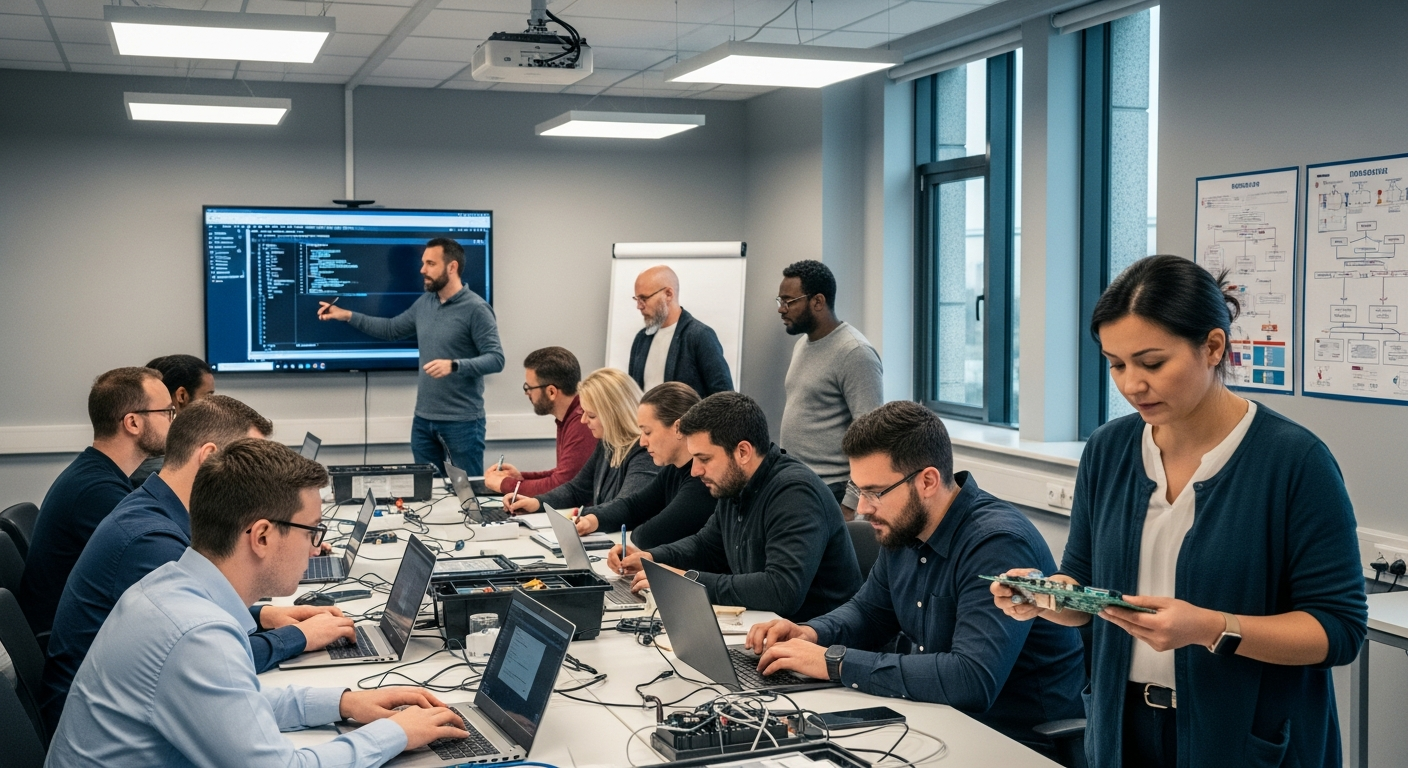Microlearning: The Key to Rapid Skill Acquisition in Modern Careers
In today's fast-paced professional landscape, the ability to quickly adapt and learn new skills is paramount. Enter microlearning, a revolutionary approach to skill development that's transforming how we acquire knowledge in the workplace. This innovative learning strategy breaks complex topics into bite-sized, easily digestible chunks, allowing professionals to learn efficiently and effectively.

The Evolution of Workplace Learning
Traditional corporate training methods often involved lengthy seminars or multi-day workshops that took employees away from their daily tasks. While these approaches had their merits, they frequently resulted in information overload and poor retention rates. As businesses began to recognize the need for more agile learning solutions, the concept of microlearning emerged.
Microlearning isn’t entirely new; its roots can be traced back to the 1960s when educational psychologists first explored the benefits of breaking learning into smaller units. However, it wasn’t until the digital age that microlearning truly came into its own, empowered by technology that allows for on-demand, mobile-friendly learning experiences.
The Science Behind Microlearning
Research in cognitive psychology supports the effectiveness of microlearning. Studies have shown that our working memory can only process a limited amount of information at once. By presenting information in small, focused segments, microlearning aligns with our brain’s natural learning processes, leading to improved comprehension and retention.
Additionally, the spaced repetition often incorporated in microlearning platforms leverages the spacing effect, a phenomenon where information is better retained when reviewed at increasing intervals. This scientific approach to learning ensures that new skills are not just acquired but also integrated into long-term memory.
Implementing Microlearning in Career Development
For professionals looking to advance their careers, microlearning offers a powerful tool for continuous skill development. Many companies are now integrating microlearning platforms into their training programs, allowing employees to learn at their own pace and on their own schedules.
To effectively implement microlearning in your career development strategy, start by identifying key skills or knowledge areas you need to improve. Look for reputable microlearning platforms that offer courses in these areas, and commit to regular, short learning sessions. Even 5-10 minutes a day can lead to significant skill growth over time.
Microlearning in Action: Real-World Applications
Across various industries, microlearning is proving its worth. Sales professionals use microlearning modules to stay updated on product features and sales techniques. IT workers leverage bite-sized coding lessons to keep pace with new programming languages. Healthcare providers use quick video tutorials to learn about new medical procedures or equipment.
One notable success story comes from a multinational tech company that implemented a microlearning program for its customer service team. By providing short, daily lessons on product updates and customer interaction techniques, the company saw a 25% increase in customer satisfaction scores within three months.
Challenges and Considerations
While microlearning offers numerous benefits, it’s not without challenges. One primary concern is the potential for fragmented learning if not properly structured. It’s crucial to ensure that microlearning modules are part of a coherent, overarching learning strategy rather than isolated bits of information.
Another consideration is the need for self-discipline. Because microlearning often relies on self-paced study, learners must be motivated to consistently engage with the material. Organizations implementing microlearning should consider ways to incentivize and track progress to maintain engagement.
The Future of Microlearning in Career Advancement
As artificial intelligence and machine learning technologies advance, we can expect microlearning platforms to become even more personalized and adaptive. These systems will be able to analyze a learner’s progress and preferences, tailoring content and pacing to optimize learning outcomes.
Furthermore, the integration of virtual and augmented reality into microlearning experiences promises to revolutionize skill acquisition, particularly for jobs requiring hands-on training. Imagine learning complex machinery operations through a series of short, immersive VR experiences—all without the need for physical equipment or risk.
Embracing Microlearning for Career Success
In an era where adaptability and continuous learning are crucial for career success, microlearning emerges as a powerful ally. By embracing this approach, professionals can stay ahead of industry trends, acquire new skills efficiently, and position themselves for advancement opportunities.
As we look to the future, it’s clear that microlearning will play an increasingly vital role in career development and education. Those who master the art of quick, focused learning will find themselves well-equipped to navigate the ever-changing job market, seize new opportunities, and thrive in their chosen fields.






